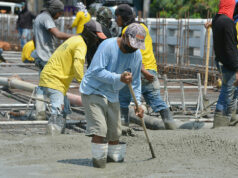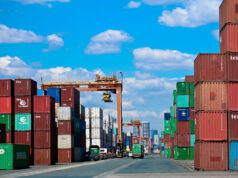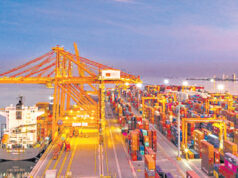Priest who opposed drug war among Magsaysay winners

By Brontë H. Lacsamana, Reporter
THE 67th Ramon Magsaysay Awards has honored three transformative leaders from Asia: a nonprofit advancing girls’ education in India, a Maldivian diver-turned-environmentalist tackling plastic pollution and a Filipino missionary priest devoted to defending the dignity of the poor and victims of injustice.
The 2025 recipients are the Foundation to Educate Girls Globally (India), Shaahina Ali (Maldives) and Flaviano Antonio L. Villanueva (Philippines). They join more than 300 past laureates of the Ramon Magsaysay Award, long regarded as Asia’s Nobel Prize for its recognition of integrity, courage and service.
“Each generation of Ramon Magsaysay awardees has shown us that integrity, courage and compassion can shape societies for the better,” Ramon Magsaysay Award Foundation Chairman Edgar O. Chua said during the global announcement on Sunday. “This year’s recipients stand firmly by that proud tradition.”
Mr. Villanueva, who opposed ex-President Rodrigo R. Duterte’s deadly drug war and known simply as “Father Flavie,” was cited for his “lifelong mission to uphold the dignity of the poor and the oppressed, daily proving with unwavering faith that by serving the least of their brethren, all are restored.”
A member of the Society of the Divine Word, the Catholic priest established the Arnold Janssen Kalinga Center in Manila in 2015 to provide food, clothing, medical services and temporary shelter to the homeless. Beyond charity, his work emphasizes dignity and community, encouraging poor Filipinos to rebuild their lives.
He also gained prominence for helping families of victims of the Philippine government’s bloody anti-drug campaign. His team helped locate and properly bury bodies of those killed, while offering counseling and spiritual healing to grieving relatives.
Foundation President Susanna B. Afan said Mr. Villanueva’s mission reflects a holistic approach to service. Outside of providing food, clothing and shelter to the poor, an important part of his work includes spiritual healing for families affected by injustices, she said.
In a video call with reporters, Mr. Villanueva said the award should inspire people to act with “greatness of spirit.” He added: “I pray and hope that this award, these people, and everybody who has been possessed by this greatness of spirit will not keep this, but rather continue to reach out so that everybody in this fractured world may be possessed by that greatness.”
From the Maldives, Shaahina Ali became the first Magsaysay Awardee from her country. A diver, photojournalist and instructor, she has dedicated her life to protecting marine ecosystems.
In 2015, Ms. Ali partnered with Parley for the Oceans, a global nonprofit, to design a program that addresses plastic pollution by turning waste into livelihood opportunities. As executive director of Parley Maldives, she leads the national implementation of the “Avoid, Intercept, Redesign (AIR)” strategy, which has since become a cornerstone of the island nation’s environmental policy.
She was recognized for “her unwavering commitment to protecting the marine ecosystem of the Maldives with passion, vision and inclusivity.”
Ms. Afan said Ms. Ali’s work offers lessons for other countries, including the Philippines. “We can work with her on how to best tackle plastic pollution,” she told reporters.
The third awardee, Educate Girls, was founded in 2005 by Safeena Husain in Rajasthan, India’s biggest state and one with the country’s highest illiteracy rate for girls.
The nonprofit mobilizes communities to challenge cultural stereotypes and ensure that girls and young women attend school, finish their education and gain skills to pursue livelihoods.
The Ramon Magsaysay Awards Foundation praised the group for “liberating them from the bondage of illiteracy and infusing them with skills, courage and agency to achieve their full human potential.”
In a statement, Ms. Husain welcomed the recognition, saying: “Girls’ education is the closest thing we have to a silver bullet to solve some of the world’s most difficult problems. It is one of the best investments a country can make.”
Ms. Afan expressed hope that Educate Girls could share its model with communities in the Philippines, particularly in remote islands where education access remains a challenge.
Since its establishment in 1958 to honor the legacy of Philippine President Ramon Magsaysay, the award has celebrated people and organizations across Asia who embody moral courage and transformative leadership.
“Their stories affirm that the leadership values embodied by President Ramon Magsaysay remain as urgent and as vital today, guiding us in a world where the need for principled action and moral clarity has never been greater,” Mr. Chua said.



